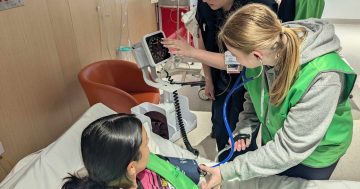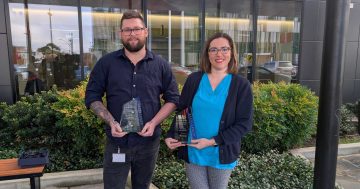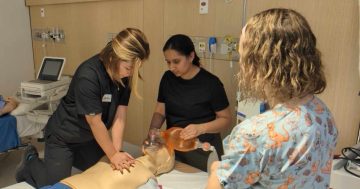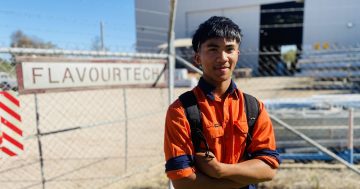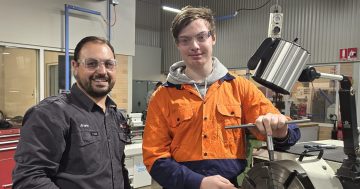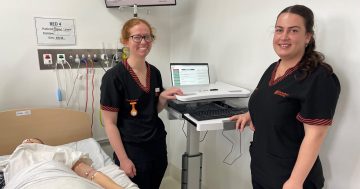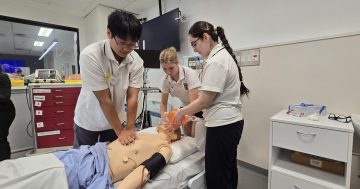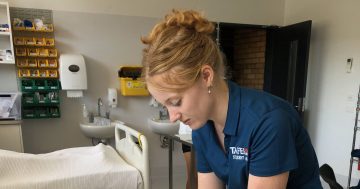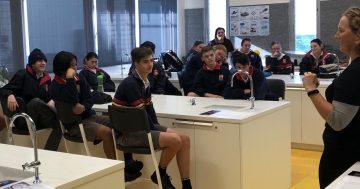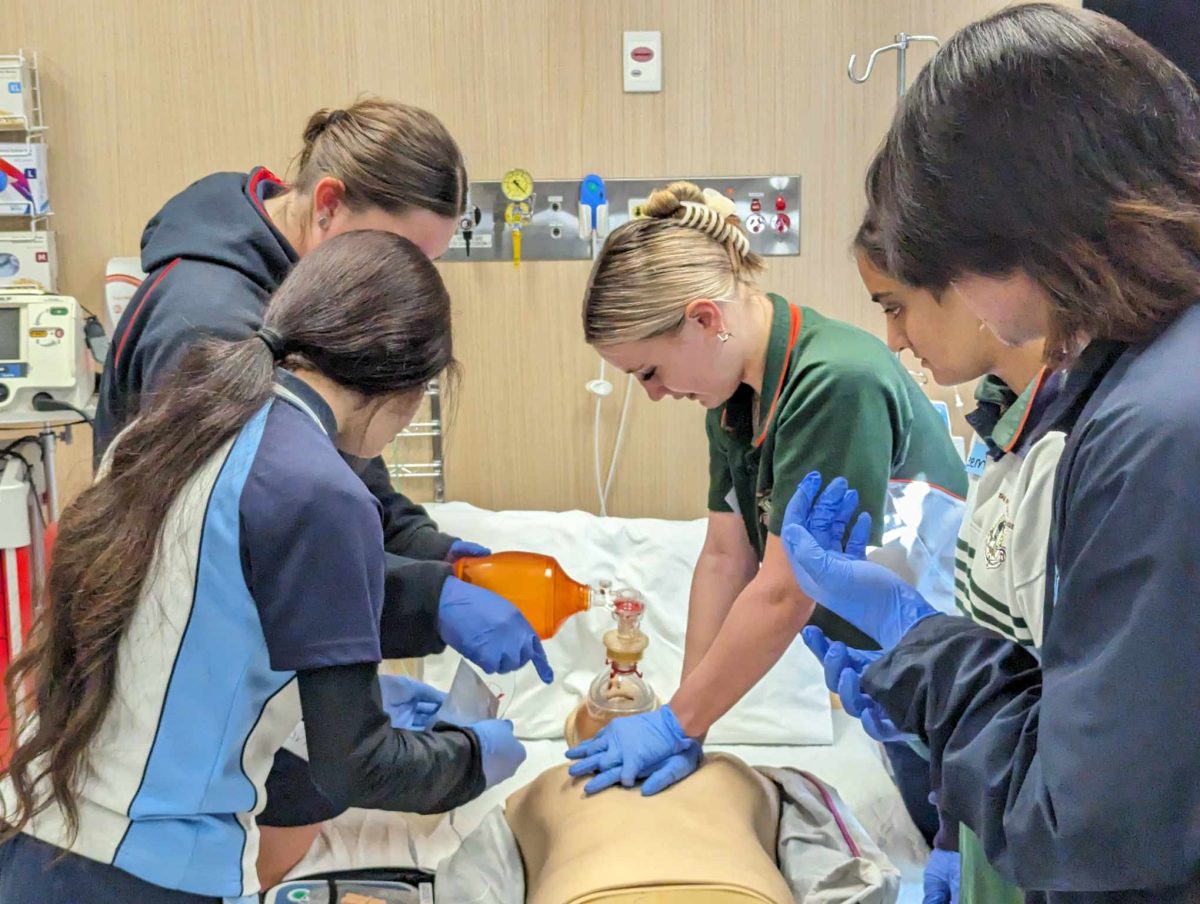
Students from several high schools across Wagga have participated in a three-day Be Like a Nurse program to better understand the working environment of a hospital. Photos: Jarryd Rowley.
Students from across the region have stepped into the shoes of Wagga Base Hospital’s busiest workers as part of the Murrumbidgee Local Health District’s Be Like a Nurse program.
The program sees senior high school students spend three days learning basic nursing training, receiving their first aid training and replicating several medical scenarios to encourage students to pursue potential nursing careers.
Training Services NSW senior project officer Stacey Suidgeest said it was important for high school students to gain hands-on experience working in a hospital before considering a career in the medical field.
“The more hands-on and immersive activities you can provide for the students, the more beneficial it is for them because they’re actually engaged,” Ms Suidgeest said.
“They’re learning more about what it takes to work in the industry, but they’re also inspired because they’re getting a bit of fun as well.”
Students completed their first aid training on the first day of the program before completing practical activities including taking blood pressure, measuring blood sugar levels, practising CPR and treating snake bites.
“Year 10 is about the age when students will start to think about their careers once they leave high school,” Ms Suidgeest said.
“Providing the opportunities where students can learn more, and learn from people that are actually doing those roles, is very beneficial and influential in allowing students to make the right decision about what they want to do once they finish high school.”
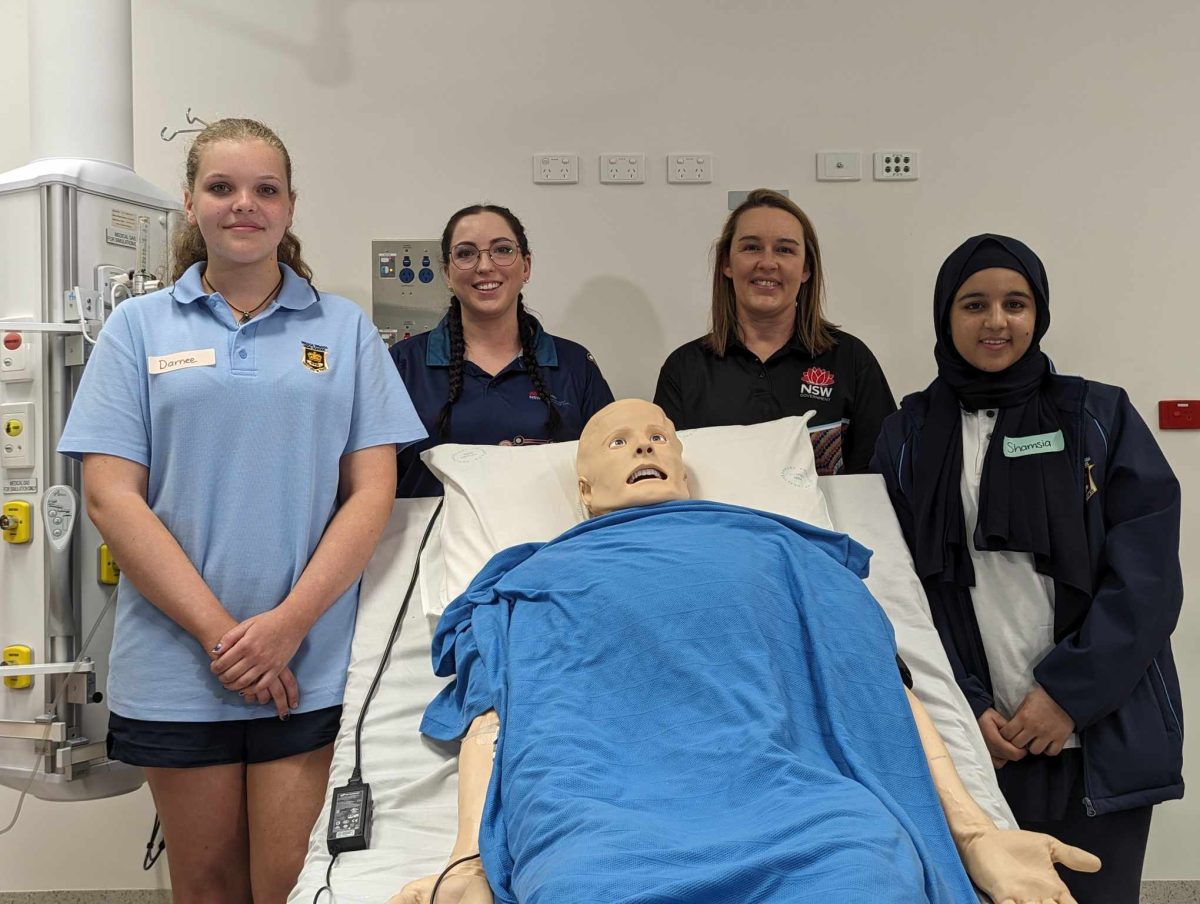
Wagga High students Darnee Doherty (left) and Shamsia Baikzai (right) we among the cohort of students who took part in the Be Like a Nurse program at Wagga Wagga Base Hospital, led by MLHD education and trainee support officer Laura Strano and Training Services NSW senior project officer Stacey Suidgeest.
Wagga Wagga High student Darnee Doherty said the experience of the program helped shape her decision to potentially pursue a medical or nursing career.
“It’s been a really good opportunity to see in-depth what it is like to be a nurse,” Darnee said.
“It has helped me make my mind up on something I might like to do when I’m older.”
MLHD education and trainee support officer Laura Strano said programs like Be Like a Nurse were a more productive means to demonstrate to students what it is like to work in a medical profession as opposed to the more traditional work experience.
“Work experience is really difficult to actually organise within a health setting because obviously there are vaccination requirements, as well as some age rules which are put in place for the safety of the young people coming into health facilities,” she said.
“A program like this gives them a much more meaningful workplace experience than work experience ever could.”
Ms Strano said the MLHD was looking to work with more schools around the Murrumbidgee region to provide meaningful and impactful experiences to better inform students before choosing to take on a medical career.
“The last thing you’d want is for someone to go through a whole year of university because they didn’t get an opportunity like this and then realise that it wasn’t what they wanted to do,” she said.
“We are so lucky to have school support as well because it actually improves our program.”
The MLHD has run two successful nursing programs in 2023 and hopes to expand to four in 2024.







